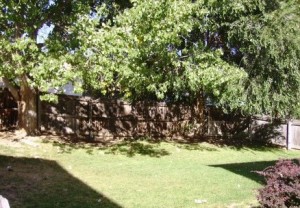 It was strange to see houses shaped like boxes from the plane. There was so much symmetry and apparent order. I saw alienating fences for the first time. At my father’s duplex that evening upon arrival, the first thing I did was tap on the walls. I had heard that all the houses in America were made out of wood. I didn’t believe it, so now I was confirming in disbelief. In India, our house along with neighbors’ was made out of stone, cement, and bricks. These homes in American seemed as if they could be blown over by a strong gust of wind.
It was strange to see houses shaped like boxes from the plane. There was so much symmetry and apparent order. I saw alienating fences for the first time. At my father’s duplex that evening upon arrival, the first thing I did was tap on the walls. I had heard that all the houses in America were made out of wood. I didn’t believe it, so now I was confirming in disbelief. In India, our house along with neighbors’ was made out of stone, cement, and bricks. These homes in American seemed as if they could be blown over by a strong gust of wind.
I have always had an intense curiosity and have been very inquisitive, particularly as a child. On my first full day in the U.S., I hurried out in the morning, ready to explore. I had not made it past the duplex front steps when I came across a lady walking by. She turned to me and said “hi!” I stared at her in amazement, and then ran inside to ask my father what this word meant. We were then gradually taught crucial words such as “sorry” and “thank you.” “Sorry” was used for an assortment of situations.
Winchester, MA was conservative and it took some adjustment to adapt to the different cultures of not just two countries, but also to a place I felt even more different than I would in some other US cities. I became the oddball kid who didn’t know the language. I might have therefore been considered “stupid.” I must have believed it and took it personally, as I remember crying under a tree during recess because no one would play with me. I think I had decided sometime after that, that I was a freak.
English was a completely new language for me. I had been accustomed to speaking several languages in the village I lived in prior to moving to the US. My friends spoke different languages or dialects of the same. The dialect of my native tongue has no written text. So to write, one used the common north Indian language, Hindi. In school, I was given books about Dick, Jane and Spot. These were challenging as I got stuck in rules such as why the “I” sounds the way it does in “Dick” versus “kite.” Then I discovered soap operas. Finally, English was making sense. I could see the language used in context. What had begun as a mysterious language had begun to unfold. From not knowing simple greetings, I had come to the finer challenges of differentiating the “v” sound from “w.” I would say “wan” and “fiwe” instead of “van” and “five.”
The American food around me seemed rather bland, consisting mostly of what seemed to be boiled vegetables with a seasoning choice of only salt and black pepper. In India, I had grown up with food such as Khichiri (a mixture of lentils, rice, and vegetables), which I now see in healthy gourmet cookbooks. I still normally use more spices than salt and vegetables. My taste in food has stayed mostly the same.

